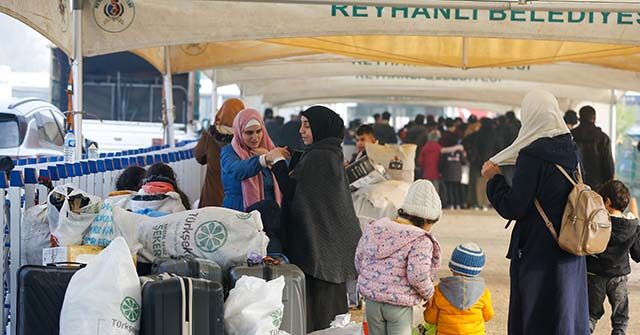In recent developments, Turkish Interior Minister Ali Yerlikaya announced that 7,621 Syrian refugees returned to Syria voluntarily between December 9 and 13. This influx aligns with the ongoing repercussions of the Syrian civil war, which has led to over three million Syrians fleeing to Turkey since hostilities began in 2011. Observing significant changes on the ground, Yerlikaya noted that the numbers of returnees soared by as much as 200 percent following the overthrow of President Bashar al-Assad by Islamist rebels on December 8. He projected a substantial upswing in returns, necessitating an increase in border crossing capacity from 3,000 to 15,000 per day to accommodate the anticipated surge.
Yerlikaya’s statements reflect growing sentiments among Turkish officials and citizens expressing a desire for Syrian refugees to return home more swiftly. As fears about maintaining stability in Turkey rise amid economic strains and public discontent regarding the refugee population, even opposition parties are pushing for measures to facilitate returns. Recently, mayors from the opposition Republican People’s Party (CHP) offered to purchase one-way bus tickets for refugees in their districts, indicating both a shift in political discourse and a practical approach to managing the presence of Syrians in Turkey.
For many refugees, the decision to return is laden with challenges and complexities. Although many expressed a desire to go back to Syria, they also voiced apprehensions about the harsh living conditions that persist in their home country. Significant infrastructural issues prevail, including a lack of water and intermittent electricity, making daily life precarious. Additionally, the uncertainty surrounding the governance of Syria raises concerns for those contemplating such a perilous return, particularly with Islamist factions consolidating power in areas previously controlled by Assad. Hayat Tahrir al-Sham (HTS), an offshoot of al-Qaeda, has emerged as a dominant force in the new political landscape, leaving many refugees apprehensive about the security risks and potential regime changes.
Experts in migration and refugee studies acknowledge that a sizable portion of the refugee population is likely to return in the long term, but this process will not be swift. Metin Corabatir, head of the Asylum and Migration Research Center, highlighted the complexities involved, emphasizing the need for a broadly recognized government to stabilize the region before a large-scale return can effectively occur. The challenges presented by various factions in the region, coupled with the refugees’ concerns over safety and daily life, will define the pace at which people may feel secure enough to resettle.
Turkey’s integration of over three million Syrian refugees has economically adjusted to their presence, accommodating the influx with cheap, undocumented labor. A rapid departure of a large segment of this population could pose significant economic risks for Turkey. While the situation in Turkey has become a pressing topic of discussion, the refugee crisis is also impacting the conversation across Europe. Several countries, including Austria, Belgium, and Germany, have begun assessing scenarios for repatriating Syrian refugees but remain cautious due to the prevailing security dilemmas in Syria that could harm returning individuals.
Austria has taken proactive steps by introducing a “return bonus” scheme amounting to $1,050 for Syrian refugees who choose to go back home. This initiative echoes solutions proposed by Turkish officials but complicates matters for refugees due to the logistical barriers they face. Traveling back to Syria—especially under current circumstances—requires thorough consideration of safety and security, which adds layers of difficulty to their decision to return. Thus, while the political climate in Turkey and broader Europe may indicate a push for repatriation, the realities on the ground in Syria could slow down this process significantly and force conflicting priorities as safety remains paramount for refugees contemplating the journey.

